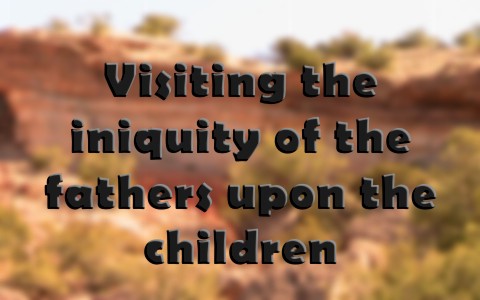-
The joy of God-given love
The Song of Solomon 2:8–13 is part of the lectionary readings for the fifth Sunday after Pentecost, which is July 5th. The background for this love ballad is the romance between Solomon and his beloved bride. According to 1 Kings 4:32, King Solomon composed 1,005 songs. Many Bible scholars assume that the Song of Songs (sometimes called the Song of Solomon) is one of these. It seems most reasonable to accept Solomon as the God-inspired composer, especially since the title refers to Solomon by name (1:1). In fact, his name appears many times throughout the book (1:5; 3:7, 9, 11; 8:11, 12). Admittedly, there are some who question Solomon’s authorship…
-
Different but the Same
Most nights I go to bed anxious. Anxious about the turmoil across our country and our world. Anxious about the place where my little boys will grow up and the challenges they will face. The past few months have shocked us with pain, turmoil, and anger. They have marked us and made us. Life will look different, even after we return to our normal routines. As I worry about the unknowns ahead, I’m reminded that Solomon told us, “There is nothing new under the sun” (Ecclesiastes 1:9). Our problems are unique, but they are not new. Just take a look at the Bible’s history. Anger turned to murder within the…
-
What Did the Philosophers Know and When Did They Know it? Part 2
Jesus told Pilate, “For this reason I was born, and for this reason I came into the world – to testify to the truth. Everyone who belongs to the truth listens to my voice” (John 18:37). “Therefore see to it that the light in you is not darkness” – Jesus (Luke 11:35). While skimming a book I’d previously read entitled “The Great Philosophers: From Socrates to Foucault”, a quick summary of influential philosophers, I was sometimes struck by the darkness and futility of their ideas. Yet I was open to seeing truths that might be found within the shadows so to speak. I gleaned what truthful ideas I could from…
-
What Did the Philosophers Know and When Did They Know it? Part 1
“I should be much more afraid of being mistaken and then finding out that Christianity is true than of being mistaken in believing it to be true” (Blaise Pascal).[1] While revisiting a book entitled “The Great Philosophers: From Socrates to Foucault”, a short synopsis of many of the best known philosophers, I was struck by thoughts of meaninglessness. For thousands of years philosophers have been discussing questions like, “How do we know what we know?” “How can we know anything?” “How do we know we exist?” etc. What futility it is not to believe in God and to disbelieve in the possibility of life after death, to believe everyone eventually…
-
Vanity of Vanities
A sixty-two-year-old man went to the ER. Doctors found a large mass pushing his stomach down between his hips. They removed the twelve-pound mass. It was not a tumor. The man had swallowed $650 worth of coins. He had a psychiatric condition called pica in which a person eats inanimate objects. Are you a glutton for possessions? I did a recent closet inventory to prove I don’t hoard. Purses: twenty-nine; earrings: sixty pair; shoes: fifty-two pair. I see shopping as a boring, time-sucking inconvenience. So why do I have so much stuff? …
-
The Joy of God’s Presence (2 Chronicles 5-7)
Do you like celebrations? For what reasons do you celebrate? Have you ever celebrated the presence of God in your life? In this article, we will look at why we should celebrate God’s presence with us and how to do that. Solomon is our example. “When Solomon finished praying, fire came down from heaven and consumed the burnt offering and the sacrifices, and the glory of the Lord filled the Temple…When all the Israelites saw the fire coming down and the glory of the Lord above the Temple, they knelt on the pavement with their faces to the ground, and worshiped and gave thanks to the Lord (2 Chronicles 7:1-3).” God’s…
-
The Leader with No Ears
Leadership is broken because leaders are unbroken "To listen well is as powerful a means of communication and influence as to talk well." – John Marshall Leaders who don’t listen talk their way right out of leadership. That’s exactly what happened to Rehoboam, Solomon’s son, who disqualified himself as king over most of Israel because he refused to listen to his followers. A representative group of leaders came to Rehoboam from the northern part of what should have been his kingdom (I Kings 12:1-17) and asked him to lighten the tax and forced labor load that his father had put on them. He responded with wisdom and sought…
-
A Leader’s Loves
Leadership is broken because leaders are unbroken What a leader loves determines how a leader leads. Consider Solomon, for example. Solomon loved the Lord and walked according to the statutes of his father, David . . . As long as Solomon loved the Lord and walked according to David’s ways, he was humble and trusted God for an understanding heart because he knew he was not adequate to lead God’s people. Solomon demonstrated his love for the Lord by living in radical dependence on Him. Because of this request God gave Solomon a discerning heart and with it, God gave him more than he asked for: riches and…
-
The Principle of Except
Leadership is broken because leaders are unbroken The demise of Solomon should scare us out of our complacency and drive us to our knees. Once the wisest man on earth, then one of the most idolatrous men in the world, and finally a murderous man, Solomon shows us the role of the heart in leaders. How did this come about? One thing you must understand: Solomon allowed his heart to outgrow his altar, as he became a victim of the principle of except… Could this happen to us? There is plenty of evidence that the most dedicated among us can be snarled in the trap of adultery or fall…




























